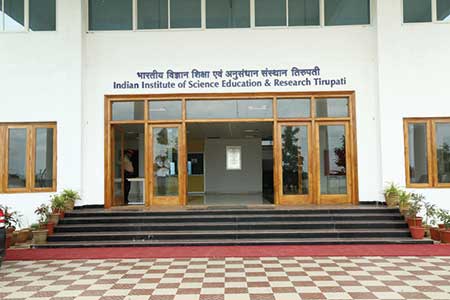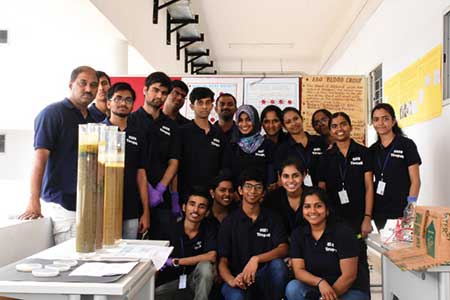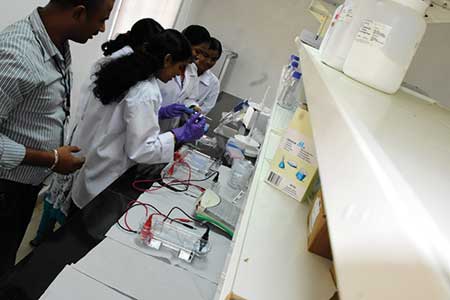From Mutterland to Mutterland via Vaterland
Career strategies for young European scientists
Vasudharani Devanathan, Labtimes 03/2016
Page 1 | Page 2 | Page 3
Returning with a vision
To fill this gap between research and teaching, the Indian Institutes of Science Education and Research (IISERs) were established by the Government of India. IISERs offer an integrated BS-MS course in science. Any student, entering this course, will be required to study concepts in basic sciences (Biology, Chemistry, Physics and Maths) for four semesters, after which, they are allowed to specialise in the subject of their choice. Beyond this semester, several specialised courses (e.g., immunology, neuroscience, forensic science, astrophysics) are offered. IISERs host several visionary scientists, who are educated in highly reputable institutes and have returned to India with a vision to establish international scientific culture in India.
Only at the very last minute, I saw an advertisement from IISER Pune for faculty positions in the new IISER at Tirupati. Hurriedly, I sent in my application package, so as not to miss that opportunity. Fortunately, my application was shortlisted for an interview, which was to be held in Pune. Even for the interview, the people at the institute were kind and helpful. Telling them, I did not know where to leave my little son during my interview, they kindly offered me a place, for one day, in the day care centre within the campus. Only a few places in India have such a facility, perhaps very few places all over the world.
Kind reception
Arriving at the campus, I immediately felt welcome and was even interviewed first, so I wouldn’t be away from my son for an unnecessary length of time. How thoughtful and friendly! After competitive selection, I was invited to join the new IISER team, which is mentored by the experienced IISER Pune team. Since I was going to move with my toddler, I was also offered best possible care for me to settle down in Tirupati. IISER in Tirupati (IISER T) is the sixth IISER Institute and started operation in August 2015. Mentored by IISER Pune, IISER T has completed its first year with its first batch of 48 students.
During the first semester, our mentors from Pune, Dean Bhas Bapat, Coordinator V.S Rao and A.A. Natu flew in and out of Tirupati and ensured that the scientific standards set in IISER Pune had been transferred to us. IISER Pune’s director, KN Ganesh, takes personal care of our research needs and is also constantly monitoring the quality and standards of the research labs, currently being established in Tirupati.
The Biology lab, for instance, is going to be equipped with the latest instruments required for cutting edge research. Confocal and fluorescence microscopes, FACS, ultracentrifuges, BSL-2 cabinets for cell culture and a dedicated cell culture facility will soon arrive at the campus. Within one year, faculty and students have initiated several extra-curricular activities and clubs such as a science club, an eco club, biology club and maths club. Facilities at the institute include a sports room, a TV room, gym and whatnot, even a small place for our toddlers.
Know-how from across the globe
The best things about the Institute is that the faculty has brought with them expertise from different parts of the world and is also given full freedom to design courses, curriculum and any other activity in the Institute. To increase interaction between students and teacher, each of us has only five students, whom we closely mentor. In such an intimate surrounding, it’s much easier to help the students study well and also take care of their emotional needs.
Apart from applying to various research funds and establishing biology labs, I also teach an undergraduate biology course, conduct exams and assess students. My position has allowed me to establish new collaborations with national and international institutes, which will hopefully advance my research in neurodegeneration and cell signalling. At my lab in IISER T, we will soon be taking PhD students. While India has opened further doors for me, Deutschland has not closed its doors. I still collaborate with my former bosses in Tübingen and Hamburg and also initiate MoUs (Memoranda of Understanding) between our institutes. Without exaggeration, I can confidently say that IISERs are to India what the Max Planck Institutes are to Germany.
Page 1 | Page 2 | Page 3
Last Changed: 21.06.2016









